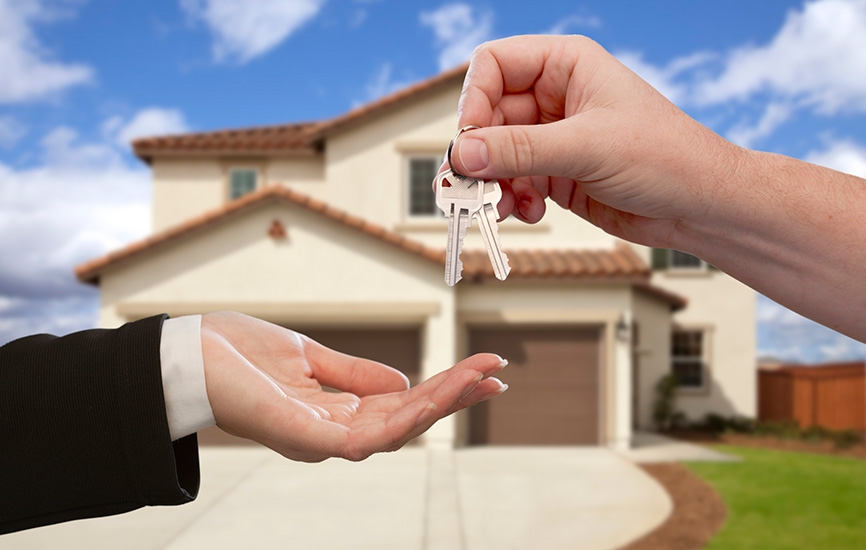Now you have no landlord to tell you what you can and cannot do. But wait; that also means that now there’s no landlord to do some things for you.
Before you get all your boxes unpacked, there are few things that you should do to make your home as safe as possible.
SAFETY
Install New Locks.
It’s so exciting to be given the keys to your new home after signing stacks of paperwork. You may be tempted to not change the locks, but have you thought about all the people who may have a key to what is now your home?
While the keys are new to you, the prior homeowner may have given a copy to some trusted neighbors, friends, and family members. These people are not trusted to you!
There are a couple ways to change locks. For those not so handy or not having any extra time, you can call a locksmith or handyman to come to your home. They should be able to change the locks so that they all use the same key.
For those more willing to “DIY”, go to your local hardware or home improvement store. Ask for assistance in getting lock sets that are keyed alike.
Check Fire Protection Devices.
It’s important to check all smoke detectors to make certain that they are working. You should change the batteries or you may need to replace the whole device. You should have at least one carbon monoxide detector. Again, is this device working properly? Typically these need to be replaced more often than the smoke detectors.
You should also have at least one carbon monoxide detector, depending on the size of your home, you may need more. If there is already one in the home, make sure to check the device to ensure that it’s working properly. Typically carbon monoxide detectors need to be replaced more often than the smoke detectors.
Another fire protection device that is often overlooked is a fire extinguisher. Fire extinguishers come in different sizes and different ratings, but having a fire extinguisher rated A, B, C and keeping it readily accessible in the kitchen is a must-have.
Post Emergency Numbers.
Now that you’ve moved, whether into a new community or not, do you know all the important phone numbers that you may need to call? What if it’s night-time and the power goes out? What if you hear someone prowling around your home? For the first
What if it’s night-time and the power goes out? What if you hear someone prowling around your home? For the first
What if you hear someone prowling around your home?
Post these important numbers on your refrigerator, load them in your phone, or write them on a paper and keep them in a drawer that’s easy to access in a hurry.
FINANCE
One may think that a down payment is the greatest financial obstacle one has to face when purchasing a new house, but I can tell you that there are numerous expenses that go with owning the home of your dreams.
Here are some simple tips to help you handle those these expenses that come with buying a home.
Create a New Financial Plan.
One thing to consider is changing your budget, or creating a new budget, once you purchase your home. This may seem like common sense but there is more to it than that.
Once you move from an apartment to a home, expect your utilities and maintenance bills to increase due to the fact that you are now moving into a greater space and are now responsible for maintaining that space on your own.
Instead of alternating a mortgage payment for your prior rent payment, spend some time tracking expenses, then update your budget so that it mirrors the actual cost of living in your new home.
You will notice that you’ll be spending more than expected and you will need to adjust some of your expenses such as travel and leisure.
Prepare to Spend Money on Upkeep and Maintenance.
As mentioned above, you will be responsible to allocate some money on maintenance and repairs to keep your home in great condition. Some repairs may be pricier than others such as major and unexpected projects like a leaky roof or an outdoor living space; the costs to repair these kinds of projects may require you to adjust your budget accordingly.
Property Taxes May Rise.
Property taxes have a tendency to rise and for several reasons. The main reason is that property taxes are based on the Assessed Value of your home and are tied to local city tax rates. So the higher the Assessed Value of your home, the higher your property tax may be.
Or another reason your property taxes may rise is if you decide to perform various home improvement projects that require a city permit. Why? This is because these types of home improvements are considered a capital improvement to the home. When the improvements are permitted, the Assessed Value of your home will rise, thus making your property tax higher.
So, before you get too settled into your new home, make sure that you stay safe and are protected both personally, and financially prepared. Then you can rest assured and enjoy your new space.
Until next time,
Paulette

